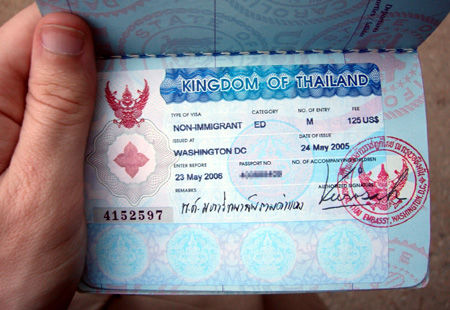
A one-year visa in Thailand allows foreign nationals to stay in the country for extended periods, primarily for purposes such as retirement, work, education, marriage, or volunteering. These visas are categorized based on the applicant’s intent and must comply with the regulations of Thai immigration authorities. Unlike short-term visas, one-year visas require thorough documentation and periodic reporting to ensure compliance.
1. Types of One-Year Visas
1.1 Non-Immigrant O Visa (Retirement or Marriage)
- Eligibility:
- For retirees aged 50+ or individuals married to a Thai citizen.
- Requirements for Retirement:
- Minimum monthly income of 65,000 THB or bank deposit of 800,000 THB.
- Requirements for Marriage:
- Proof of marriage to a Thai citizen and financial stability.
1.2 Non-Immigrant B Visa (Business and Work)
- Eligibility:
- For individuals employed by Thai companies or starting a business.
- Requirements:
- Valid employment contract, work permit, and corporate documents from the employer.
1.3 Non-Immigrant ED Visa (Education)
- Eligibility:
- For students enrolled in Thai educational institutions.
- Requirements:
- Enrollment letter from the school or university, along with proof of financial support.
1.4 Non-Immigrant O Volunteer Visa
- Eligibility:
- For individuals volunteering with organizations registered in Thailand.
- Requirements:
- Approval from the Ministry of Social Development and Human Security.
2. Application Process
2.1 Pre-Entry Requirements
- Visa Application:
- Apply at a Thai embassy or consulate with the necessary documents, such as passport, photographs, and proof of eligibility.
- Financial Evidence:
- Submit proof of income, savings, or employment as per the visa type.
2.2 In-Country Steps
- Visa Conversion (if applicable):
- If entering on a different visa, convert to a one-year visa at the Thai Immigration Office.
- Extension of Stay:
- Apply for annual extensions based on the visa category, with updated documentation.
3. Financial and Reporting Obligations
- Financial Proof:
- Visa holders must maintain the required financial thresholds in Thai bank accounts.
- 90-Day Reporting:
- All long-term visa holders must report their current address to immigration every 90 days.
4. Benefits and Limitations
4.1 Benefits
- Long-term residency without frequent visa renewals.
- Access to various Thai services, including healthcare and banking.
4.2 Limitations
- Restrictions on employment for certain visa categories.
- Failure to comply with reporting obligations may result in fines or visa revocation.
Conclusion
A one-year visa in Thailand offers flexibility and security for foreign nationals seeking extended stays. However, the application process and ongoing compliance require careful preparation and adherence to Thai immigration laws. Consulting with immigration experts or legal advisors can simplify the process and help avoid common pitfalls.

